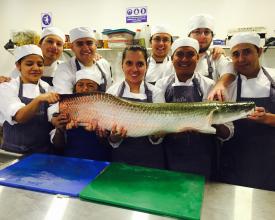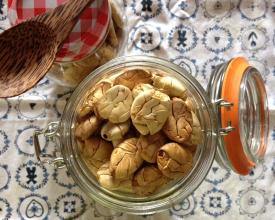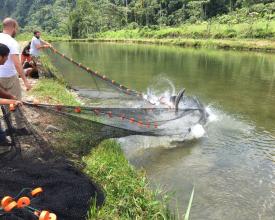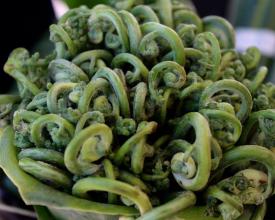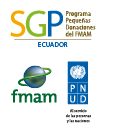
La gastronomía como agente de cambio hacia una producción más diversa y sostenible
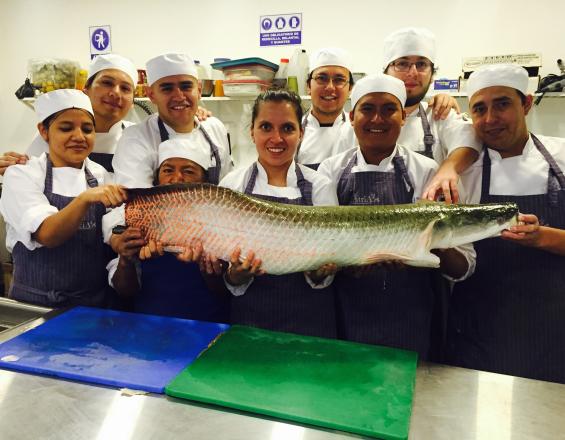
Durante generaciones, las comunidades indígenas amazónicas han integrado las explotaciones agrícolas y los bosques para producir una extraordinaria diversidad de alimentos, pero las fuerzas del mercado y culturales están erosionando estos sistemas tan bien perfeccionados.
Un floreciente movimiento alimentario latinoamericano está creando nuevas oportunidades. Las relaciones entre las comunidades de la selva tropical y los chefs pueden ayudar a incubar nuevas empresas y mostrar la Amazonia, a través de deliciosos alimentos, a nuevos públicos y aliados.
Canopy Bridge trabaja con un grupo de más de 25 chefs de los mejores restaurantes de Ecuador, comunidades indígenas y ONG conservacionistas para desarrollar cadenas de valor de alimentos frescos amazónicos (paiche de acuicultura - Arapaima gigas- de Ai-Kofán y productos cultivados por el pueblo kichwa en unidades de producción chakra muy diversificadas) que tienen importantes beneficios para la conservación y un gran potencial culinario. Gracias al establecimiento de una cadena de distribución desde la Amazonia hasta Quito, estos productos llegan ahora semanalmente a los mercados de alimentos especializados y a los restaurantes.
Impactos
A través de esta iniciativa se generan impactos positivos a múltiples escalas.
Las piscifactorías del Ai-Kofán proporcionan importantes ingresos a partir de superficies muy reducidas, a diferencia de las extensas explotaciones ganaderas o las plantaciones de palma aceitera. Los ingresos alternativos de la piscicultura reducen así la presión de la deforestación. El objetivo a largo plazo es que estas actividades puedan contribuir económicamente a la conservación en curso del territorio de los Ai-Kofán y a la cogestión de las áreas protegidas nacionales, al tiempo que gestionan in situ una especie amazónica emblemática y amenazada.
La venta de una canasta diversificada de productos de las chacras kichwas del Napo, contribuye a valorar este sistema de cultivo de manera integral. Al promover una variedad de productos tradicionales, estas alianzas dan valor económico a la diversidad en lugar de hacer hincapié en soluciones simplistas de monocultivo. El valor no es meramente económico; la relación con nuevos aliados y públicos también celebra y refuerza los ricos orígenes culturales que dieron origen a los ingredientes.
El proyecto piloto de 4 meses dio lugar a una hoja de ruta empresarial para el crecimiento y la consolidación de un centro de distribución de productos naturales sostenibles en Quito.
Una prioridad para el trabajo en curso es evaluar los impactos nutricionales, supervisar las compensaciones entre el mercado y el consumo doméstico, y trabajar junto con las comunidades para identificar oportunidades para mejorar la nutrición familiar basada en los recursos locales.

